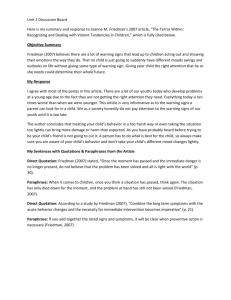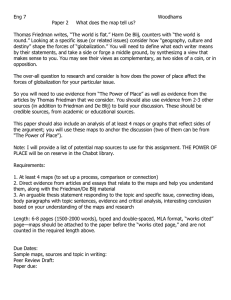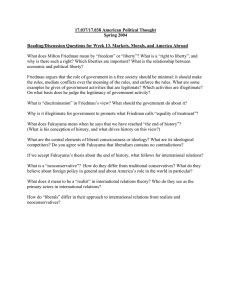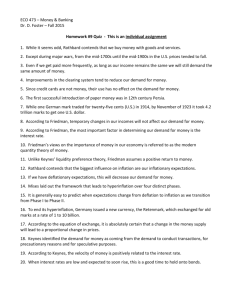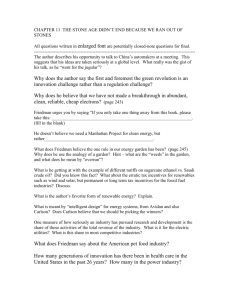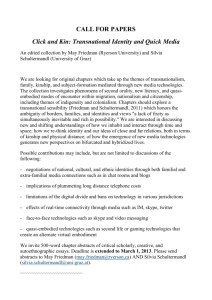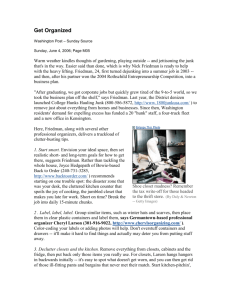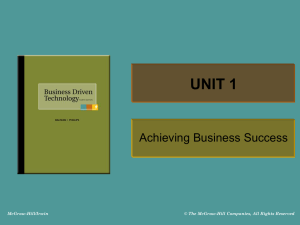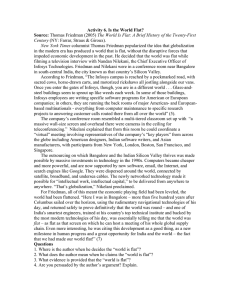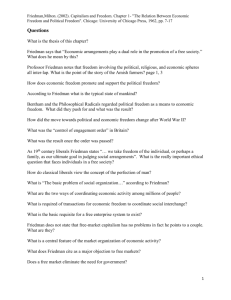see ATTACHMENT - Regents School of Austin
advertisement
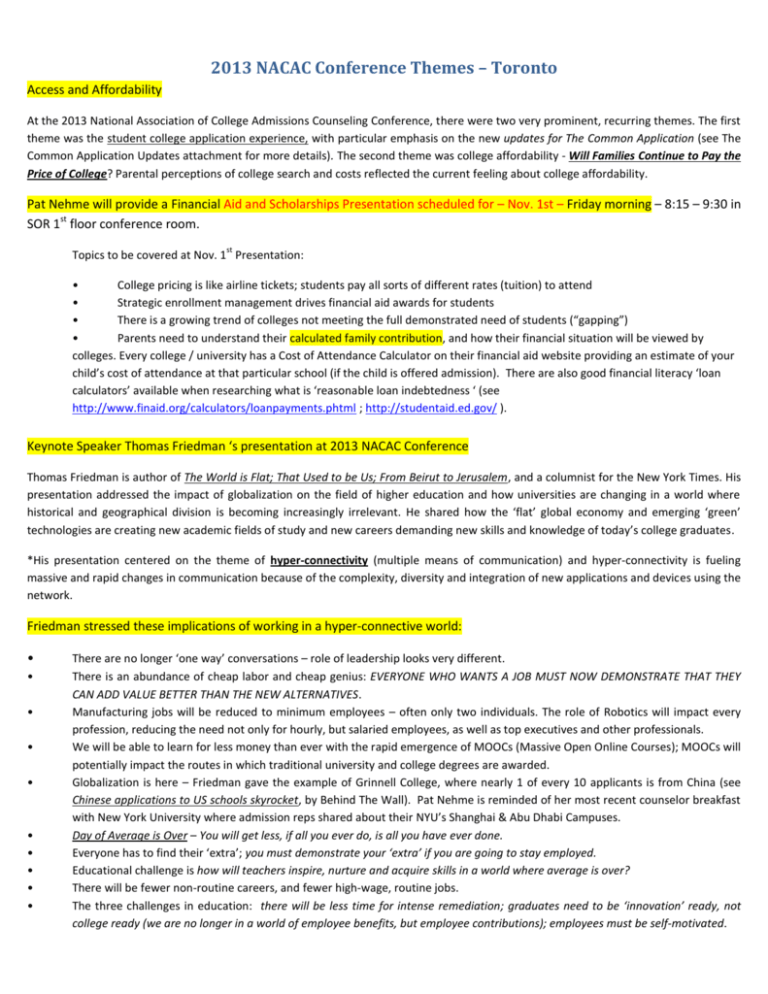
2013 NACAC Conference Themes – Toronto Access and Affordability At the 2013 National Association of College Admissions Counseling Conference, there were two very prominent, recurring themes. The first theme was the student college application experience, with particular emphasis on the new updates for The Common Application (see The Common Application Updates attachment for more details). The second theme was college affordability - Will Families Continue to Pay the Price of College? Parental perceptions of college search and costs reflected the current feeling about college affordability. Pat Nehme will provide a Financial Aid and Scholarships Presentation scheduled for – Nov. 1st – Friday morning – 8:15 – 9:30 in SOR 1st floor conference room. st Topics to be covered at Nov. 1 Presentation: • College pricing is like airline tickets; students pay all sorts of different rates (tuition) to attend • Strategic enrollment management drives financial aid awards for students • There is a growing trend of colleges not meeting the full demonstrated need of students (“gapping”) • Parents need to understand their calculated family contribution, and how their financial situation will be viewed by colleges. Every college / university has a Cost of Attendance Calculator on their financial aid website providing an estimate of your child’s cost of attendance at that particular school (if the child is offered admission). There are also good financial literacy ‘loan calculators’ available when researching what is ‘reasonable loan indebtedness ‘ (see http://www.finaid.org/calculators/loanpayments.phtml ; http://studentaid.ed.gov/ ). Keynote Speaker Thomas Friedman ‘s presentation at 2013 NACAC Conference Thomas Friedman is author of The World is Flat; That Used to be Us; From Beirut to Jerusalem, and a columnist for the New York Times. His presentation addressed the impact of globalization on the field of higher education and how universities are changing in a world where historical and geographical division is becoming increasingly irrelevant. He shared how the ‘flat’ global economy and emerging ‘green’ technologies are creating new academic fields of study and new careers demanding new skills and knowledge of today’s college graduates. *His presentation centered on the theme of hyper-connectivity (multiple means of communication) and hyper-connectivity is fueling massive and rapid changes in communication because of the complexity, diversity and integration of new applications and devices using the network. Friedman stressed these implications of working in a hyper-connective world: • • • • • • • • • • There are no longer ‘one way’ conversations – role of leadership looks very different. There is an abundance of cheap labor and cheap genius: EVERYONE WHO WANTS A JOB MUST NOW DEMONSTRATE THAT THEY CAN ADD VALUE BETTER THAN THE NEW ALTERNATIVES. Manufacturing jobs will be reduced to minimum employees – often only two individuals. The role of Robotics will impact every profession, reducing the need not only for hourly, but salaried employees, as well as top executives and other professionals. We will be able to learn for less money than ever with the rapid emergence of MOOCs (Massive Open Online Courses); MOOCs will potentially impact the routes in which traditional university and college degrees are awarded. Globalization is here – Friedman gave the example of Grinnell College, where nearly 1 of every 10 applicants is from China (see Chinese applications to US schools skyrocket, by Behind The Wall). Pat Nehme is reminded of her most recent counselor breakfast with New York University where admission reps shared about their NYU’s Shanghai & Abu Dhabi Campuses. Day of Average is Over – You will get less, if all you ever do, is all you have ever done. Everyone has to find their ‘extra’; you must demonstrate your ‘extra’ if you are going to stay employed. Educational challenge is how will teachers inspire, nurture and acquire skills in a world where average is over? There will be fewer non-routine careers, and fewer high-wage, routine jobs. The three challenges in education: there will be less time for intense remediation; graduates need to be ‘innovation’ ready, not college ready (we are no longer in a world of employee benefits, but employee contributions); employees must be self-motivated. Advice Friedman gives his children: 1. Think like an immigrant (there are no more legacy spots, stay hungry; figure out opportunities; know that things can be taken away / change any second). 2. Think like an Artist - every work assignment should be individualized with one’s personal imprint on all their work. 3. Think like Silicon Valley – Live Life in Permanent Beta where one possesses an endless quest to be better (one’s work is never done; learn & re-learn). Staying relevant doesn’t mean bringing a new product to market every few years. Real, lasting success belongs to those who aren’t afraid to live life in beta. These are the individuals who know that failure is opportunity, who ASK FOR HELP, and who constantly hack their schedule trying to squeeze in more productivity (reading a book now, to build soft assets, that can be converted to ‘hard assets’ later (Reid Hoffman). You always must be acquiring a new literacy and maintaining an entrepreneurial mind-set. Innovators, not necessarily the top executives, will be the ones rewarded. 4. P.Q. and C.Q. as much as I.Q. (Employers will take P.Q. and C.Q. over I.Q.). P.Q. (Passion Quotient) & C.Q. (Curiosity Quotient) = individuals who invent jobs and relearn for a lifetime. 5. Think like a Waitress – In one’s own sphere of influence, bring your extra. Friedman recounts the time he was served by a waitress who, when presenting the order said, “I brought you extra fruit”. In summary, Friedman ended his presentation by stating a Liberal Arts Education is still the best foundation for living in a hyperconnected world. • We need to be lifelong learners. There is no economic law that says technological progress has to benefit everyone – it is entirely possible for the pie to get bigger and some people to get a smaller slice- (Race against the Machine, by Andrew McAfee). • More individual initiative will be needed to be competitive in the job market; acquire skills complimentary to technology, not those skills that can be and will be replaced by technology.
